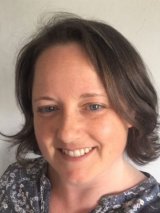Projects per year
Personal profile
Research interests
In light of the recent COVID 19 pandemic, I have been using my expertise in innate immunity signalling and inflammation to initiate new research areas. In collaboration with several others from Glasgow University, Lincoln University and Oxford University, we have developed a new statsistical methods and artifical intellegence to predict who has the virus SARS CoV2 at a very early stage of infection using only simple blood tests. My research until now has been as an in vitro pharmacologist working on numerous projects involved with molecular mechanisms that underpin numerous disease states, such as nuclear receptors involved in inflammation.
My background has been to study vasoactive compounds that control vascular function, and over the past couple of years I have worked in multi-disciplinary groups to screen for drugs that control pancreatic diseases, both diabetes and cancer.
Supervisory Interests
With the significant changes occuring in our understanding of the COVID 19 pandemic, the majority of new projects on offer will be focused on this new area of research. It is apparent that in order to prevent future waves of disease that will occur from novel viruses, it is important to understand how our innate immunity is best equiped to both recognise new pathogens and also respond in a manner that is not deleterious to the individual.
A large proportion of prevous research has focused on how nuclear receptors control transcription and thus control how cells respond on the long term to pathogens and chronic disease states.
Projects on offer involve:
1. Developing early diagnosis tools for highly pathogenic viruses such as SARS CoV2
2. Understanding how nuclear receptors may be manipulated to ensure a rapid response to new pathogens without harming the patient
3. Changing cell function using nuclear receptor agonists to manipulate human blood derived progenitor cells to create new organs such as lung and deepening our understanding of how PPARβδ receptors control inflammation and disease.
Two other in vitro projects in collaboration with other universities; to isolate or identify hit compounds to control diabetes and pancreatic cancer. One set of compounds have been isolated form natural plant products from Gabon (the extract is already in use to control diabetes in humans), while the other screening cascade involves compounds have been designed via computitonal chemsitry Collaborators: Hertfordshire University and IPHAMETRA institute, Gabon.
Education/Academic qualification
Postgraduate Certificate Learning and Teaching in Higher Education, University of Hertfordshire
Award Date: 19 Sept 2014
PhD, The Role of PLC isoforms in the Regulating Differentiated function in Vascular Smooth Muscle, Imperial College London
1 Oct 2000 → 1 Oct 2003
Award Date: 30 Nov 2003
Bachelor, Biological Sciences with Microbiology, University of Warwick
Award Date: 11 Jul 1996
Fingerprint
- 1 Similar Profiles
Collaborations and top research areas from the last five years
Projects
- 1 Finished
-
Tabernanthe iboga (TiAE) in isolated pancreatic islets of Langerhan
MacKenzie, L., Macfarlane, W., Lione, L., BADING-TAIKA, B., Zloh, M. & Souza, A.
1/01/14 → 31/12/18
Project: Research
-
A robust COVID‑19 mortality prediction calculator based on Lymphocyte count, Urea, C‑Reactive Protein, Age and Sex (LUCAS) with chest X‑rays
Ray, S., Banerjee, A., Swift, A. J., Fanstone, J., Mamalakis, M., Vorselaars, B., Wilkie, C., Cole, J., Mackenzie, L. S. & Weeks, S., 29 Oct 2022, In: Scientific Reports. 12, 1, 14 p., 18220.Research output: Contribution to journal › Article › peer-review
Open Access -
Development of a Mortality Prediction Model in Hospitalised SARS-CoV-2 Positive Patients Based on Routine Kidney Biomarkers
Boss, A., Banerjee, A., Mamalakis, M., Ray, S., Swift, A. J., Wilkie, C., Fanstone, J., Vorselaars, B., Cole, J., Weeks, S. & Mackenzie, L. S., 30 Jun 2022, In: International Journal of Molecular Sciences. 23, 13, 13 p., 7260.Research output: Contribution to journal › Article › peer-review
Open AccessFile -
A simplified risk tool, LUCAS, which predicts the outcome for patients with SARS-CoV-2 also predicts survival from Influenza A and Influenza B infections.
Wilkie, C., Ray, S., Banerjee, A., Mamalakis, M., Swift, A. J., Vorselaars, B., Fanstone, J., Weeks, S. & Mackenzie, L. S., 7 Sept 2021.Research output: Contribution to conference › Abstract › peer-review
-
Can kidney function be used to predict survival of COVID-19 in hospitals? Predictive modelling in a retrospective cohort study.
Mackenzie, L. S., Wilkie, C., Ray, S., Banerjee, A., Mamalakis, M., Swift, A. J., Vorselaars, B., Fanstone, J. & Weeks, S., 7 Sept 2021.Research output: Contribution to conference › Abstract › peer-review
-
Co-Incubation with PPARβ/δ Agonists and Antagonists Modeled Using Computational Chemistry: Effect on LPS Induced Inflammatory Markers in Pulmonary Artery
Perez Diaz, N., Lione, L., Hutter, V. & Mackenzie, L. S., 19 Mar 2021, In: International Journal of Molecular Sciences. 22, 6, p. 1-19 19 p., 3158.Research output: Contribution to journal › Article › peer-review
Open AccessFile
